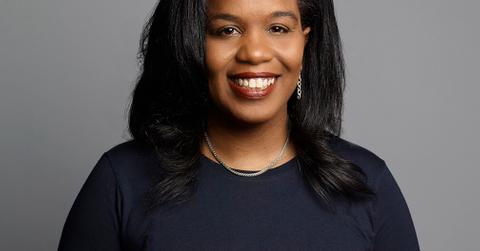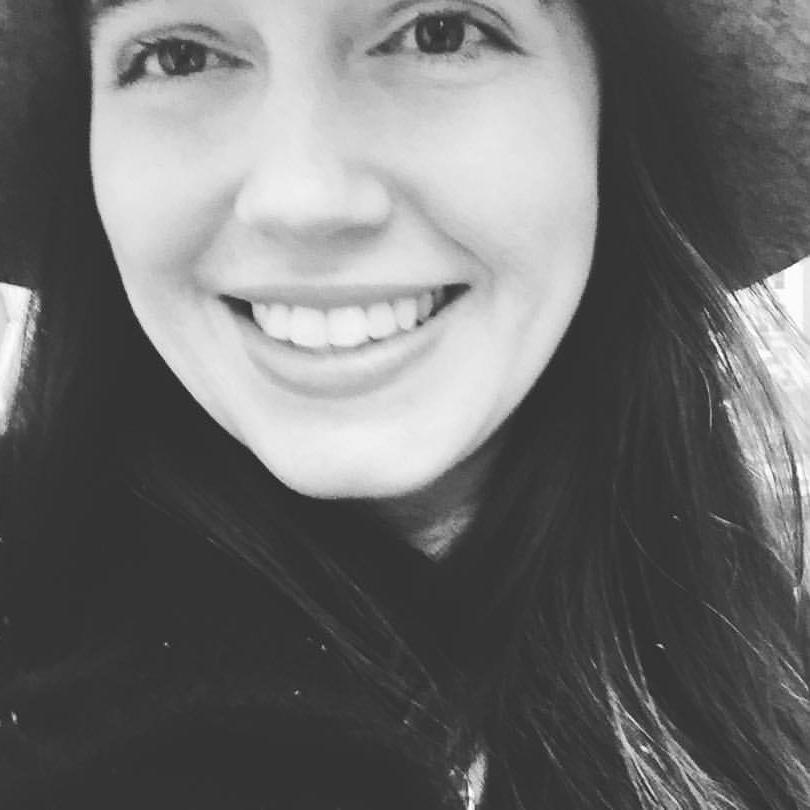-One of my favorite mantras is “stay focused.” You have to learn from failure as much as you do from success.
Long before “diversity” was the current buzzword in every executive’s talking points, Antoinette Hamilton was proving diversity and inclusion were tied directly to achieving business results. As early as 2004, her team at L’Oréal USA used diversity and inclusion initiatives to drive innovation. Now, she’s using her decades of experience to continue building an inclusive and diverse workplace at AppNexus, a leading tech company that has doubled down on their commitments in this space by publishing their company’s demographic data and publicly stating their diversity and inclusiveness goals.
Her Agenda chatted with Hamilton about how her upbringing shapes her work, the top mistakes organizations can make in the diversity and inclusion space, and why it all matters.
Her Agenda: Tell me about where you grew up and what your childhood was like.
Antoinette Hamilton: I grew up in a city that went through desegregation in the late 1980s and I was a part of that. Through much my teen years it was very racially divided in many ways.
Her Agenda: Who inspires you?
Antoinette Hamilton: My mom inspires me. She was a working mom and also a very decidedly working class. I talk to her every single day and she is a woman of faith. I’m particularly (as many women are) super hard on myself and she constantly reminds me to do just do my best—that’s all that God requires, after you’ve done that there’s nothing you can do. So having that commitment to excellence, but also knowing when you have to let go. As a leader that’s a really important skill if you are leading teams, leading people, or leading an organization— that when you have a failure, you can’t wallow in it, you have to move on to the next thing. That’s how organizations evolve and that’s how you learn and grow.
-When you have a failure, you can’t wallow in it, you have to move on to the next thing.
Her Agenda: What do you think most contributed to your success today?
Antoinette Hamilton: One of the things that contributed to my success was the ability to live abroad in another country. For three years I lived in in Japan. That helped contribute to my success because it helped me see the world outside of myself and outside of my Americanness, if you will. That was really my only world view. Again I grew up in New York, a great state, but I think living in a foreign country and especially a non-western country, you get to see yourself outside of the lens you always lived in. It really is about worldview, how decisions are made and how it affects other people in other countries.
Her Agenda: When you’re feeling self-doubt creep in, how do you overcome it?
Antoinette Hamilton: I go back to my core: my family, my faith. One of my favorite mantras is “stay focused.” You have to learn from failure as much as you do from success. But also, you can’t let the stress eat you up. You have to find those spaces where you gain energy and strength, and for me that’s my family, it’s also in traveling, and sometimes it’s just sitting alone in a quiet room. You have to identify them pretty early because you are going to lean on them often.
Her Agenda: You have a long successful career journey, what is a piece of advice you would give to women who have been in their careers for 10+ years and might be feeling like they don’t know what their next step will be or career jump should like?
Antoinette Hamilton: I do a lot of coaching with folks and it goes back to that self doubt and self-esteem. I would tell the mid-career woman, don’t worry so much! Have confidence in the choices that you’ve made and move on from there. I don’t want to sound too harsh, but there is something to be said about not worrying and knowing you’re prepared for what’s coming next. It really does all work itself out because you’ve already laid out the steps. Do a bit of self reflection and then work to try and build those skills either through your current job or outside of the job you are currently doing. For example, if you want do social media you can find a not-for-profit organization to do work around that. Get creative about building the skills that you feel are the right ones to get to that next career level.
With networking and mentorship, so often people want to network up, but they never think about getting feedback from someone at your level or someone more junior. Ask for feedback broadly. Look to your boss for direction from a vision standpoint, but look to your peers or other employees to give you feedback.

Her Agenda: You have been doing work in the diversity and inclusion corporate space since the early 2000’s, far ahead of the current trend of all companies having a dedicated position to this work—what was your career journey that led you into this work?
Antoinette Hamilton: When I was a little girl I didn’t say I was going to be a diversity and inclusion professional—I didn’t have that language. However, my mom raised me to fight for others from a social justice standpoint. I always knew I’d do something in this space, without giving it a name. After teaching in Japan and working for a not for profit, INROADS, I decided to take a bunch of temp jobs so I could see more companies and work in organizations. That’s how I actually landed at L’Oréal working in a diversity and inclusion. I knew we were on the cusp of something.
When you think about diversity and inclusion, accountability is critical. AppNexus had already set goals before I got here in 2017. One of those things that you need is a CEO at the center who believes in this work. We had that from leadership. You need to have all of these elements in place if you’re going to be serious about this work and want to see success. Otherwise, you will be doing work that checks the box and visibly will get you some credit, but you’re really not going to move the needle within the organization. I felt that AppNexus had that in place to be able to continue this work.
Her Agenda: In your experience, what is the hardest area of diversity and inclusion work to tackle?
Antoinette Hamilton: This is not AppNexus specific, generally, we have a lot of best practices out there and that’s fine, but I think it’s incumbent on an organization to find the right practices for them because otherwise what you are going to have is just a bunch of activities and a bunch of things that you can point to that you’ve done…but you’re not going to intrinsically move the needle around, for example, advancing people of color or women, driving those things that really demonstrate inclusion within your organization. And then that’s the piece of the equation that garners the fruits of having the diversity. Inclusion is how you move the needle with the diversity you have to drive business outcomes for the organization. Companies have to get very specific on what they want to impact around diversity and inclusion. Realizing that diversity is one thing, and inclusion is another.
-Companies have to get very specific on what they want to impact around diversity and inclusion. Realizing that diversity is one thing, and inclusion is another.
Her Agenda: What is your definition of diversity and inclusion in the workplace?
Antoinette Hamilton: Diversity is representation. Inclusion is a choice. It’s about the behaviors of the organization and also the ones that they support, allow, and elevate.

Her Agenda: Why does it matter?
Antoinette Hamilton:It matters because it drives business performance and its connectivity to humanity and social justice. Study after study show that diverse teams outperform non-diverse teams. People want to show up and work in places where they are included, have a voice, and can make an impact. In a knowledge economy where you are thinking about the work that you are doing, it really is about the environment that we create. It becomes important because it goes to the humanity, if you will, of an organization.
Her Agenda: What isn’t an effective way of addressing diversity and inclusion in a company?
Antoinette Hamilton: What absolutely doesn’t work is having an initiative and not setting any goals. There have to be some goals and accountability around this. How you hold them accountable—this is where we go from best practices to real practices—has to be in ways that make sense for your organization. You have to make this as accountable as achieving the bottom line for the organization.
Her Agenda: When there is so much work to be done in this space (especially if an organization hasn’t been thinking about it), where do you think people should start?
Antoinette Hamilton: The first place to start is with identification of key stakeholders. Second is establishing the diversity and inclusion goals themselves, that are aligned with an organization’s business objectives. Be specific about the goals and how they should impact an organization’s workforce, workplace, and/or the way they go to market.
Her Agenda: Tell me more about the initiatives that AppNexus is working on in this area.
Antoinette Hamilton: Our ambitions are very clear. We are working on diversifying our pipeline. We’re working on conscious inclusion, which includes training and leveraging our affinity groups, and we’re working on global belonging which is creating very geo-specific action plans for our specific markets.
[Editor’s note: This interview published on November 12th, 2018. It has been edited for length and clarity.]









